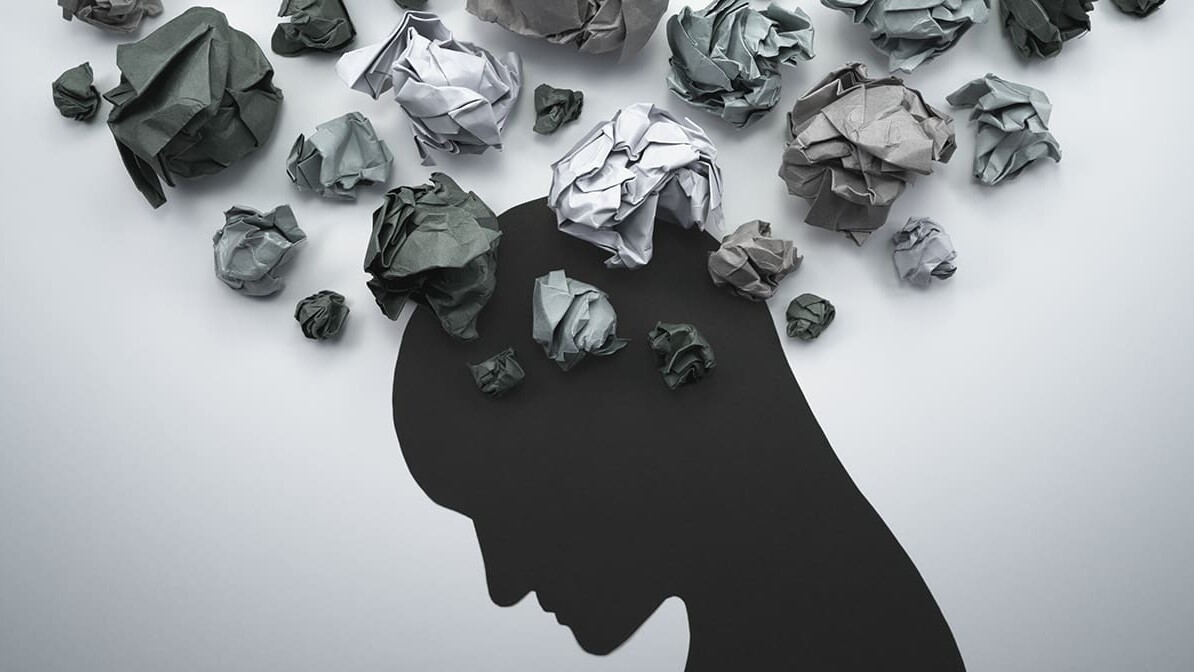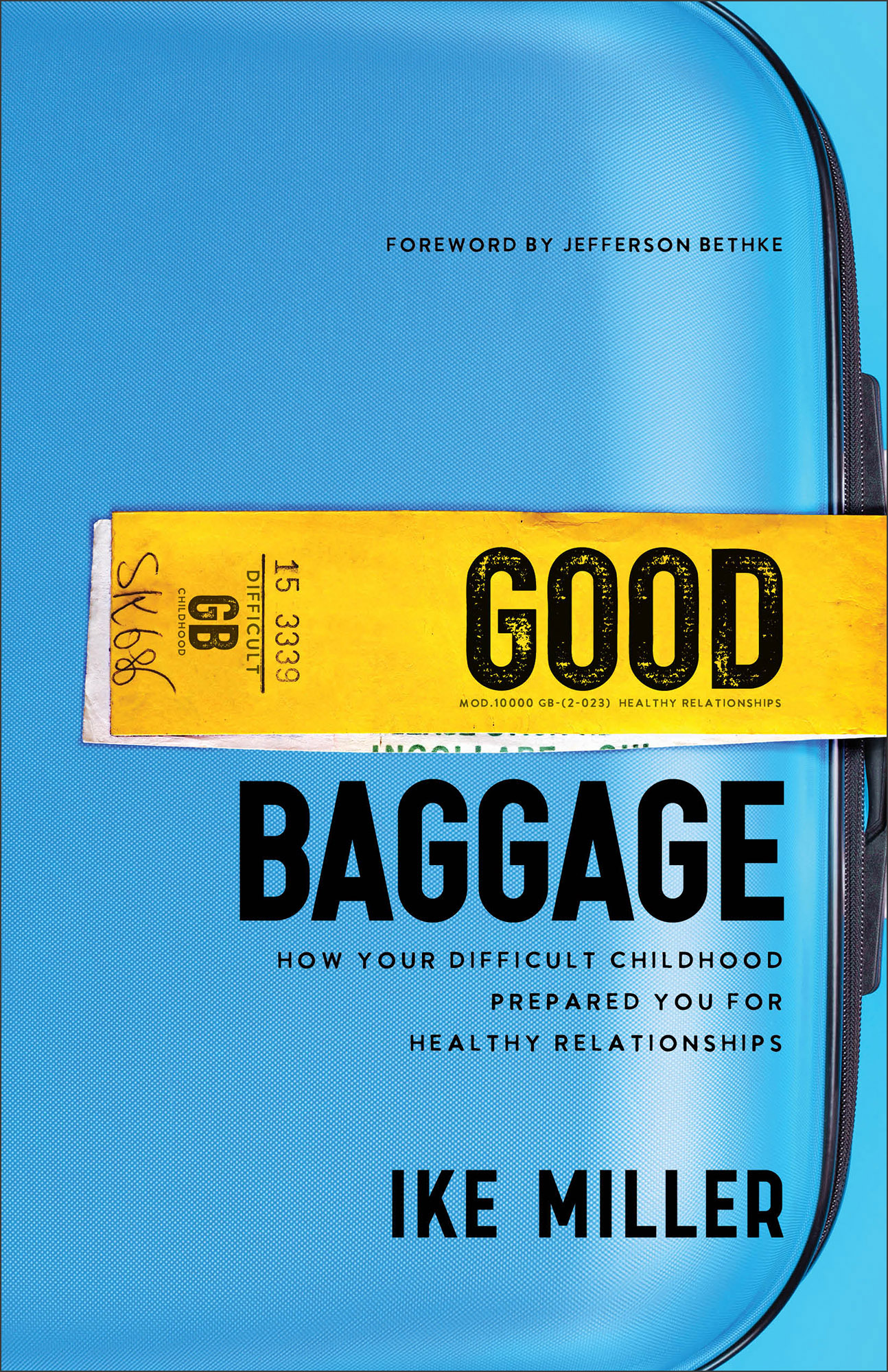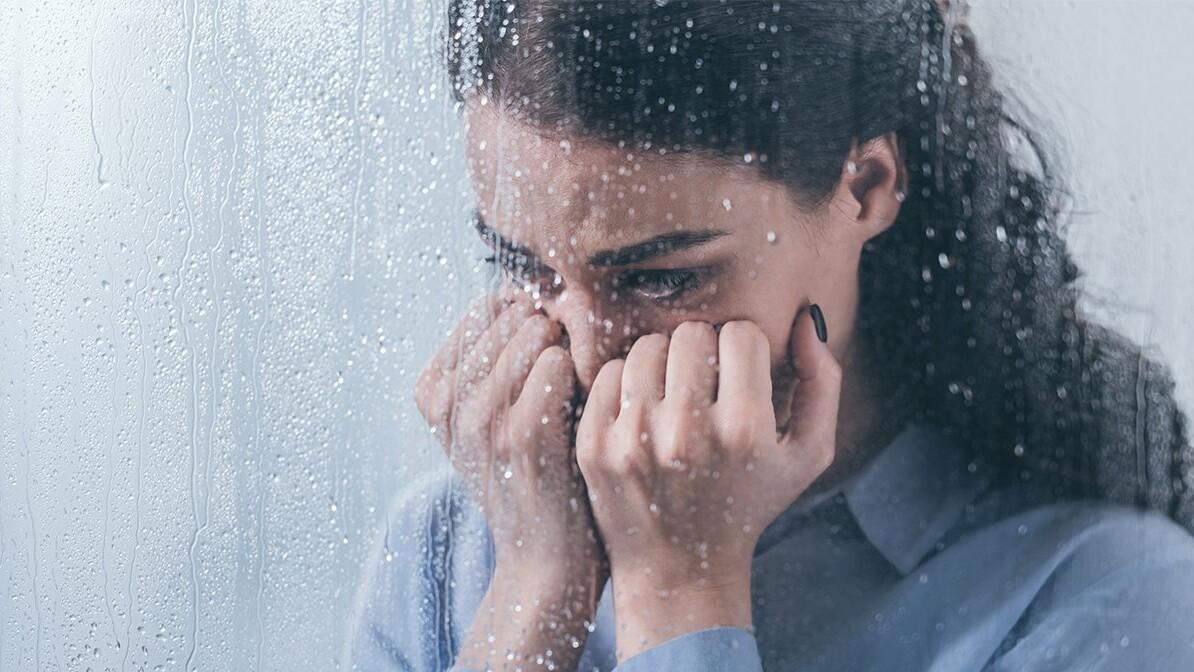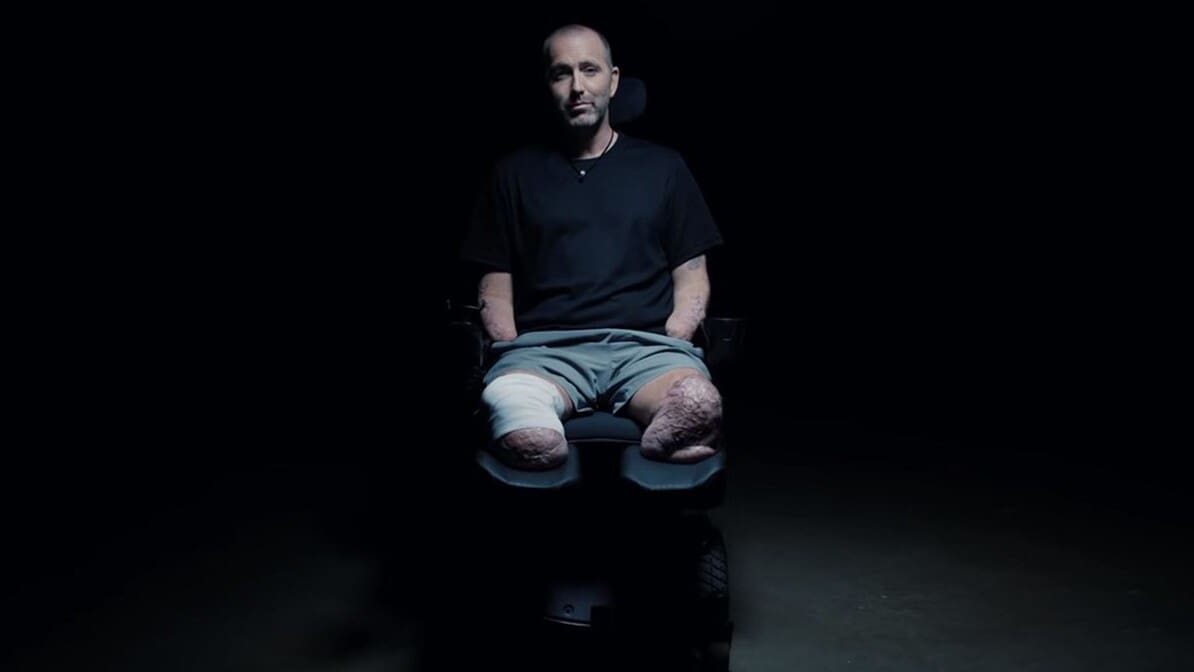
Is Anything Really Okay?
 Excerpt taken from Good Baggage: How Your Difficult Childhood Prepared You for Healthy Relationships by Ike Miller
Excerpt taken from Good Baggage: How Your Difficult Childhood Prepared You for Healthy Relationships by Ike Miller
In July 2014, Sharon and I moved back to North Carolina after four years in Chicago. Sharon was a couple of months pregnant with our second child, and we were both finishing our dissertations. We moved back because North Carolina was where we wanted to be long-term. There was just one hiccup—we relocated before we got the final word on the job I was hoping to land. It was a stressful time for both of us.
We moved into our little, second-floor, two-bedroom apartment in Holly Springs and waited for our shipping pod with all our treasured possessions to arrive. We waited. And waited. On the day it finally came, it was your typical ninety-five-degree, 100-percent-humidity July day in North Carolina. I went to open the rolling door of our pod, only to find it was jammed. I got it open far enough to sneak my head in and awkwardly twist my neck to discover that one of our dining room chairs had shifted during transit and its foot was now firmly lodged in the rung of the rolling door.
You’ve got to be kidding me, I thought. Not today . . .
I wiped the sweat from my brow and went to work dislodging the chair. I fought the door for what felt like hours, making trip after trip into the apartment for yet another tool. Just as I was reaching my wit’s end, it started to rain. That was the moment I broke. The sweat, the rain, and the tears all began to run down my face like tributaries rushing into a river.
I lost it. Why does it always have to be hard? Why can’t anything be easy? Why can’t things ever be okay?
This moment by the pod in the rain was a lot, to be sure. But honestly, it felt on par for life.
It’s something that’s real to many of us from dysfunctional families: the struggle to feel like things are ever really okay. This feeling is tough to bear when coupled with the sense that we’re also the ones who should make it okay. Somehow, it’s our responsibility to fix everything.
Sometimes things are okay, but that’s only because we’ve constantly worked to keep them that way, and everything will fall apart if we stop. This isn’t simply a lack of faith. It comes from us having played a stabilizing role in our dysfunctional family of origin. Now the part of stabilizer is ingrained into our beings. Unfortunately, as children, we couldn’t keep things “okay” in our homes for long because they weren’t really in our control anyway.
As adults, okay is never enough because we don’t know what it feels like. Everyone tells us things are good, and we can see that, but we also believe things are more fragile than everyone thinks.
As it did for so many of us, the pandemic lockdown meant my whole family was at home all the time with nowhere to go and nothing to do. Sharon and I split our days between working and watching the kids. This meant long periods when I had all three kids to myself. As the days and weeks went by and the pressures and tensions of life mounted, I struggled to be present with them. I was irritable and lost my temper too quickly. I was watching them, but my mind was working on problems at work.
Things weren’t okay at home. Things weren’t okay at work. And things weren’t okay within me.
My depression was resurfacing, and I was beginning to struggle with anxiety. The fact that things weren’t okay was intensified by the guilt I felt for not being able to make things okay. The plan of care my psychiatrist prescribed included an as-needed antianxiety medication.
As the pandemic dragged on and the tensions in our world heightened, I took increasing amounts of my antianxiety medication to numb the pain I couldn’t fix and silence the shame I felt for not being able to fix it. Eventually I developed an unhealthy relationship with my medication.
Sharon discovered my medication misuse in what I’ve come to call a moment of God’s severe mercy. This forced the most difficult confession of all: I was not okay.
The Source of This False Belief
As I dug deeper to understand the source of this pressure to fix everything, I found that at the base of it was the false belief that everything depended on me. The truth is, this was a weight I wasn’t made to carry. (This pressure is exacerbated if we come from a family system in which we couldn’t trust a caregiver to nurture, protect, and meet our needs).
I was suffering under the weight of an overinflated sense of how much things depended on me. In theological terms, I was dealing with a less commonly discussed form of pride. It’s not that I was boastful or thought too highly of myself. Instead, it was the kind of pride that says, “Only I can carry this. Otherwise, it will fall apart.”
Now, pride often gets labeled as a deeply sinful problem, and for those of us who grew up in religious contexts, we equate sin with something that needs to be punished. This is an incomplete definition of sin.
This kind of pride doesn’t arise from foolish arrogance. It comes from the extreme sense of responsibility we carry into everything we do—a sense of responsibility for more than we were meant to carry by ourselves.
In the original Greek, “sin” was an archery term. It meant to miss the mark. The “sin” of an arrow was the distance between where the arrow landed on a target and the bull’s-eye of the target.
Theologically, this is used metaphorically to name the reality that creation has “missed the mark” of what it was created to be—things aren’t as they should be. In this light, some sin is willful disobedience and rebellion against God. But a lot of our “missing the mark” is the outworking of our brokenness. Things aren’t as they should be because broken people hurt us, and we’re living out of the brokenness inflicted on us.
This isn’t an excuse to say we aren’t responsible for our actions and decisions. But a more robust view of salvation is that Christ didn’t come only to take away punishment for our sins. He also came as the great physician to heal us of sin and its effects. This is an especially powerful correction to our theology for those of us who grew up under harsh and abusive punishment.
Not everything in us needs punishing. Some of what’s broken in us needs healing.
In this framework, pride isn’t exalting ourselves above others. Pride is the overinflated sense that everything depends on us. Granted, this isn’t a feeling we chose. It’s something that formed in us because of the dysfunction of our childhood. Nevertheless, it needs to be healed because it produces overwhelming pressure that leads to exhaustion and burnout. It needs healing not just for God’s sake but also for ours.
The antidote to pride is still humility, but a kind of humility that’s different from what we’re used to. Humility is often defined as thinking lowly of ourselves. Coming from dysfunctional families, that “humility” seems to come naturally for many of us. Instead, Andrew Murray gives one of the most beautiful definitions of humility: humility is living from a place of complete dependence on God.1
On this reading, the sin of pride in the garden of Eden wasn’t that Adam and Eve wanted to be equal with God. The sin of pride was believing they could make their lives better by adding to what God had already given them. They moved from complete dependence on God to relying on themselves. Along with that came fear, shame, and doubt about God’s goodness. Murray writes that at this moment, “They fell from their high position.”2 At the moment they attempted to exalt themselves to the side of God, they fell from the lightness and freedom that came from dependence on him.
In our own lives, we may feel a need to “help God” a little. We might not put it that way, but the sense that nothing is ever okay unless we constantly work to make it okay betrays this deep-seated belief. To this mentality, Murray says that in false humility, we say, “I’m only a little bit.” But to say we are a little bit is to say that God is not all. God is only “most.” True humility is “the place of entire dependence on God,” the simple sense of entire nothingness that leaves God free to be all.3
In humility, we remember that it all depends on God, and we live from a place of utter dependence on him.
…
Order your copy of Good Baggage: How Your Difficult Childhood Prepared You for Healthy Relationships by Ike Miller
Trending Now
Sign up today for your Inspiration Today Daily Newsletter
Supercharge your faith and ignite your spirit. Find hope in God’s word. Receive your Inspiration Today newsletter now!
Ike Miller
Ike Miller leads Bright City Church in Durham, North Carolina, a church he planted in 2018 along with his wife, Sharon Hodde Miller. He has written about the intersection of theology, mental health, and family of origin issues. After confronting the impact of his own childhood, including a family history of substance use disorders, Ike has developed a passion for helping others who grew up in difficult circumstances to better understand how those environments continue to impact them and their relationship now. Learn more at ikemiller.com
Related Articles
January 28, 2026
I Just Knew It Was God: From Searching to Finding Faith
From the outside, Ekaterina’s life looked successful. She had a college degree, a strong career,…
January 26, 2026
How to Overcome Old Wounds with Resilience
How Do You Deal with Old Wounds? Everyone is talking about trauma, but very few are talking about…
November 21, 2025
Thank You … Lord
Gratitude transforms our lives and draws us closer to God. This article explores how practicing…
October 27, 2025
So, Is God Good?
Many people wrestle with the question, is God good, especially when life brings pain and loss.…
Next Steps To Strengthen Your Walk
Inspiration Today Newsletter
Supercharge your faith and ignite your spirit. Find hope in God’s word. Receive your Inspiration Today newsletter now!
Christian Articles
Find articles to strengthen your walk and grow your faith. We have a wide range of topics and authors for you.
Submit A Prayer Request
We are here for you. Simply click on the button below to reach us by form, email or phone. Together we will lift our hearts and voices with you in prayer.





